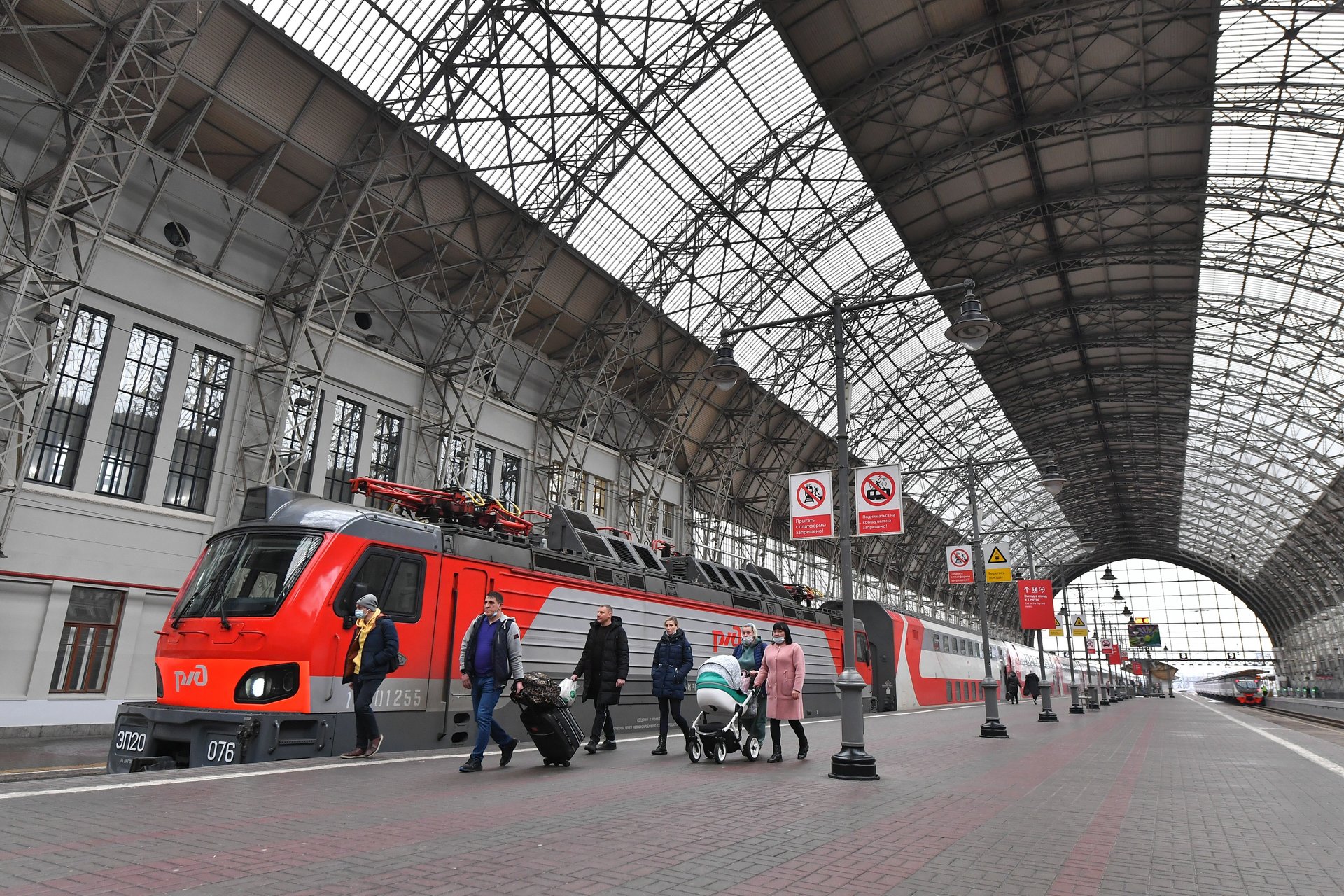Russia is developing bills on the introduction of mandatory QR codes in cafes, transport and shops, said representatives of the operational headquarters to combat the spread of COVID-19 in the Russian Federation.
“The operational headquarters together with the relevant departments are working on these bills.
We will additionally inform the media about their introduction to the State Duma, ”the headquarters said.
At the same time, the government of Tatarstan also proposes to introduce QR codes in interregional transportation.
"An appeal has been prepared to the Russian Railways and the Federal Air Transport Agency about the possibility of introducing QR codes for interregional transportation," the republic's headquarters said in a statement.
On Thursday, November 11, RBC, citing sources, reported that the government has developed two bills that will determine the procedure for introducing QR codes in Russia when visiting public places, traveling by train and air travel.
One of the documents introduces amendments to the law "On the sanitary and epidemiological welfare of the population", the second - to the Air Code and the Charter of Railway Transport.
“This is an emergency measure against the background of the deteriorating situation with the pandemic,” explained a source in the government to RBC.
On November 9, the head of Rospotrebnadzor, Anna Popova, reported that QR codes were introduced in 77 constituent entities of the Russian Federation for using certain services.
Health Minister Mikhail Murashko emphasized the high efficiency of the “QR code in exchange for a service” measure.
According to him, this is "the way to the safety of the population when receiving certain services and social contacts."
Position of air and railway carriers
The press service of Russian Railways, the largest carrier of the Russian railway network, announced its readiness to comply with state requirements regarding the introduction of QR codes for travel.
"The safety and health of passengers is the main priority of Russian Railways, so the company will certainly comply with all the new requirements of transport legislation ... Specific details are being worked out and will be determined by the provisions of the legislation," the text of the TASS message quoted.
The company also noted that a similar measure has already been taken in a number of foreign countries, including France, Turkey, and the United Arab Emirates.
It is clarified that in these countries it is impossible to purchase a travel ticket without documents confirming the passage of vaccination against COVID-19 or a negative PCR test.
AGN "Moscow"
© Sergey Kiselev
Earlier, Aeroflot CEO Mikhail Poluboyarinov, during a meeting of the Federation Council Committee on Economic Policy, emphasized that the airline opposes the use of QR codes to purchase air tickets.
At the same time, according to him, the use of such a system when boarding is normal.
“With the appropriate software <...> we will be able to check the presence of a QR code, the vaccination period.
But the purchase of a ticket in no case should be bet - I don't even understand how this can be technically limited, "TASS quotes him.
"Introducing QR codes is the right measure"
First Deputy Chairman of the State Duma Health Protection Committee Fedot Tumusov supported the emergence of legislative initiatives to introduce a system of mandatory QR codes in Russia.
According to him, the measure will lead to an increase in the rate of vaccination in the country.
“On the other hand, this, of course, limits certain rights of people, but we must proceed from the assumption that human rights end where the rights of another person begin.
Human right to health.
From this point of view, this is a forced, but legitimate position, "the interlocutor of RT emphasized.
The possible introduction of QR codes in public places should have a positive effect on the epidemiological situation in the country, says the doctor of medical sciences, virologist Anatoly Altshtein.
“I have a positive attitude towards this, I believe that this is the right measure.
It will provide a better life for people who are vaccinated and create inconvenience for people who do not want to be vaccinated.
Now the most important task in the fight against the pandemic is as many vaccinated people as possible, ”he said.
The initiative to legitimize QR codes in public places was also supported by the director of the National Research Center for Epidemiology and Microbiology named after Honorary Academician N.F.
Gamalei Alexander Gunzburg.
“This measure is effective, we saw evidence of this in the summer on the example of Moscow, when after the introduction of QR codes mass vaccination began.
If the codes are introduced at the legislative level, it will be great, ”RBC quotes him.
The complete cancellation of restrictive measures, including the rejection of QR codes, is possible only after the end of the COVID-19 pandemic, said Dmitry Peskov, press secretary of the Russian President.
“The social immune threshold itself is not a constant either.
Due to revaccination, this threshold should be constantly maintained at the highest possible level, ”he added.
According to him, the coronavirus pandemic continues, it is still "a very, very serious threat that requires very, very serious measures."
In Russia, the total number of detected cases of COVID-19 reached 8,952,472 (40,759 in the last day).
Since the beginning of the pandemic, 7,687,317 people (33,156) have recovered from the coronavirus disease, 251,691 patients (1237) have died.
According to Deputy Prime Minister Tatyana Golikova, the level of herd immunity in the country is 48.4%.

